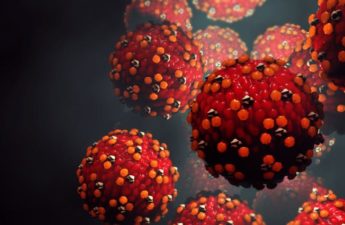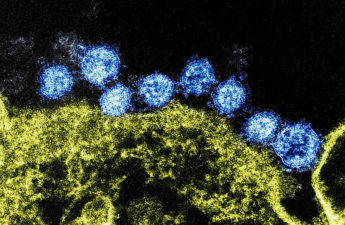
From Public Health – Seattle & King County
High temperatures are forecast for the Puget Sound Region this week. Heat can be deadly, but deaths from heat are preventable. Public Health – Seattle & King County urges those who are at higher-risk for health problems in the heat to take precautions. Serious health problems from heat include kidney failure, stroke, and heart attacks. Heat exhaustion and heat stroke are also risks.
The National Weather Service has issued a heat advisory for King County, beginning noon on Tuesday, July 26 through Friday, July 29. Based on the National Weather Service’s HeatRisk forecast, King County is forecast to reach the second highest level (“red”), defined as a high risk for much of the population, especially those who are heat sensitive and those without effective cooling and/or adequate hydration. Some areas of east King County are forecast to reach the highest level (“magenta”), defined as a very high risk for the entire population.
While daytime temperatures will be lower than what King County experienced last summer, temperatures are forecast to remain higher than normal overnight, which makes people more vulnerable to health problems from the heat.
Who is at higher risk?
If you are in one of these groups, take extra precautions to stay cool, drink water, and take breaks from the heat:
- Older adults (65 and older)
- Young children
- People with chronic health conditions or mental illness
- Athletes who exercise outdoors
- Outdoor workers
- People living unsheltered or homeless
- People who take medications that increase sensitivity to the heat, including those for allergies and colds, thyroid, depression, heart/blood pressure, and weight loss. Check with your doctor about your health conditions and medications.
Guidance during hot weather:
- Check on your neighbors, friends, and family in the area – particularly seniors and people with medical conditions – to ensure they are not suffering heat illness at home.
- Stay hydrated. Drink plenty of water before you feel thirsty. Limit or avoid caffeine and alcohol as they can be dehydrating.
- Keep your home cooler by shutting blinds or drawing curtains during the day. Open blinds at night to let hot air escape.
- Use fans or air-conditioners, if you have one. Put ice under a fan to circulate cool air.
- Spend time in air-conditioned buildings (such as malls, movie theaters, libraries, or cooling centers) if you can, and avoid direct exposure to the sun.
- Do outdoor activities in the cooler morning or evening hours.
- Cool your body quickly by wearing a wet scarf, bandana or shirt.
- Never leave children or pets in a vehicle, even with windows cracked open. It only takes a few minutes for severe medical problems and even death to occur.
- Use life jackets or other flotation devices on the water to prevent drowning.
For more tips on staying safe during extreme heat, visit www.kingcounty.gov/beattheheat.
Where to stay cool:
Some cities in King County are opening cooling centers. Here are some resources for finding more information about cooling centers:
- The King County Office of Emergency Management shares information about what cooling centers are available on its Emergency News blog.
- Local malls (The Outlet Collection in Auburn, The Bellevue Collection in Bellevue, Westlake Center in Seattle, Westfield Southcenter Mall in Tukwila, Alderwood Mall in Lynnwood), libraries, and movie theaters are all good places to cool off.
- Most King County Library System libraries will be open and can be used as cooling shelters. Only some Seattle Public Library branches are equipped with air conditioning; check for locations and times of operation.
More information:
- Cooling centers in King County
- Blog: Who is at Risk for a Heart Attack in the Heat?
- Blog: Feeling the Heat? Maybe it’s Your Medication.
- Blog: Health Officer Statement on Extreme Heat (from June 2021)
Providing effective and innovative health and disease prevention services for more than two million residents and visitors of King County, Public Health – Seattle & King County works for safer and healthier communities for everyone, every day. More at www.kingcounty.gov/health


